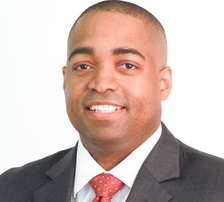By OCPA President Jonathan Small 
Former Gov. Frank Keating and Oklahoma City physician Dr. Doug Beall – both trustees of the Oklahoma Council of Public Affairs (OCPA) – recently entered the national health care debate with a piece in The Wall Street Journal.
Their thesis? Medicaid must be dramatically reformed if we are to avoid bankruptcy for the states and return the program to its original goal of helping the most vulnerable.
Keating and Beall cite some frightening statistics. Even after Oklahoma wisely opted out of the Medicaid expansion included in Obamacare, our share of the costs have reached $2.1 billion annually, an astounding 194.1-percent increase from the $714 million we spent as recently as 2003. Yet, in those years, per capita incomes in Oklahoma rose by 71 percent.
They also noted that almost one in four Oklahomans are now enrolled in Medicaid. The program covers 57 percent of all childbirths and nearly three-fourths of all Oklahoma children will be covered by Medicaid at some point between birth and kindergarten.
It doesn’t take an actuarial expert to project a future when Medicaid consumes an increasingly disastrous portion of our state budget, crowding out other needs like schools and roads.
Yet the Medicaid expansion sold under Obamacare, which would have raised eligibility to able-bodied adults 138 percent of the poverty level if Oklahoma had gone along, would have only made these problems worse, further hurting the very people Medicaid was supposed to assist.
Nor is Medicaid a bargain for those it covers. Due to exploding enrollment burdening our system, reimbursement rates have steadily declined, resulting in one in three doctors declining to accept Medicaid patients. This results in more Medicaid clients going to emergency rooms or avoiding medical care period, precisely what the program was meant to prevent.
So what is to be done? Keating and Beall suggested block grants and giving Medicaid clients greater responsibility for their health outcomes through health savings accounts that let them set funds aside for many medical expenses. They could also enroll in less costly direct primary care programs, and it remains vital that states impose rigorous audits of Medicaid rolls to prevent abuse. We’ve already seen other states save hundreds of millions of dollars with such audits.
Such audits simply identify those receiving benefits for which they are ineligible. Earlier this year, OCPA estimated that audits would save Oklahoma $85.6 million annually. And those who doubt the need for careful monitoring of Medicaid spending should note the recent Texas case of a woman charged with engineering $810,000 in fraudulent Medicaid claims while she was already serving a prison term for a previous $3 million fraud.
Another idea: tobacco settlement reforms. OCPA suggested earlier this year that all future payments to the Tobacco Settlement Endowment Trust (TSET) from the Master Settlement agreement be directed to a rural healthcare infrastructure fund. This fund would be used for the cost of health care reimbursement to rural areas that struggle with revenue stream diversity for their hospitals and have suffered actual dollar losses. The fund would also be used to fund the Physician Manpower Training Commission and shore up nursing home provider rates.
Medicaid was created in 1965 as a means to assist the most vulnerable among us. It was never intended to bankrupt state or federal budgets or to be a back-door, single-payer system for an ever-expanding client base. As Keating and Beall suggest, if you are driving a rusty 1965 car that requires endless costly repairs, it’s time for a new model.
Jonathan Small serves as president of the Oklahoma Council of Public Affairs (www.ocpathink.org).



The fraud in “disability” is equal to the medicaid scam.